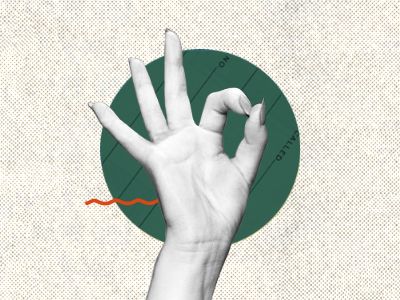
When we say Islam is a complete code of life, more often than not, we fail to grasp the full depth of this statement. As Muslims we are blessed to have a dialogue of Allah before our eyes in the shape of the Quran where Allah has laid down the supremely fundamental ilm we are meant to have. From history to biology, from geography to astronomy, and from spirituality to human psychology, this book is layered with so much knowledge that to grasp it would require more than a lifetime. One could spend his or her own life learning it and still feel like standing before an ocean of knowledge, still left to discover.
Quran speaks openly of all the aspects of human life whether they are big issues or small. It gives us commands about our daily lives as well as things we don’t usually discuss in the open. Quran openly discusses everything because it is there to teach us how to lead our lives. One such matter it has discussed is menstruation.
What the Quran says about menstruation:
Menstruation, or periods in common language, is something that is not openly discussed in our society. The reason is the wall of humility and respect between the opposite genders. But this has gone so far that girls today often don’t know the basic commandments related to it. Periods are something that every girl faces for all her reproductive years and so, it is important to discuss. What’s more, it is a form of ‘nijasat’ and as a Muslim we must know what is tahaarat (cleanliness) and what is not.
Allah says in the Quran, Surah Baqarah ayah 222,
And they ask you about menstruation. Say, “It is harm, so keep away from wives during menstruation. And do not approach them until they are pure. And when they have purified themselves, then come to them from where Allah has ordained for you. Indeed, Allah loves those who are constantly repentant and loves those who purify themselves.”
In the Quran, the word ‘adhan’ is used to describe menses. Its meaning is taken in three contexts: sickness, pain and nijasat (filth). It is beautiful the way in which Allah acknowledges this distressed time in a woman’s month. Women are usually made fun of for exaggerating the whole idea of PMS, but here Allah has mentions it as pain and sickness. One thing that should be made clear is that the concept of nijasat or filth applies only to the blood of menses, not the woman. Treating the woman as being filthy/unclean during these days is something that the Jews of that time used to believe in. So we should correct our thinking and abstain from being misguided.
Secondly, the Quran forbids men to get intimate with their wives in this time of the month as they are already toiling through a physical difficulty. This aspect is not in the scope of this article.
What the Hadith says about menstruation:
1) Prayers:
Women are not allowed to offer prayers during menses. This is proved by the following hadith,
Once Allah’s Messenger (ﷺ) went out to the Musalla to offer the prayer of Eid-al-Adha or Al-Fitr prayer. Then he passed by the women and said, “O women! Give alms, as I have seen that the majority of the inhabitants of Hell-fire were you women.” They asked, “Why is it so, O Allah’s Messenger (ﷺ)?” He replied, “You curse frequently and are ungrateful to your husbands. I have not seen anyone more deficient in intelligence and religion than you. A cautious sensible man could be led astray by some of you.” The women asked, “O Allah’s Messenger (ﷺ)! What is deficient in our intelligence and religion?” He said, “Is not the evidence of two women equal to the witness of one man?” They replied in the affirmative. He said, “This is the deficiency in her intelligence. Isn’t it true that a woman can neither pray nor fast during her menses?” The women replied in the affirmative. He said, “This is the deficiency in her religion.” (Sahih al-Bukhari 304)
A menstruating woman need not make up for her prayers. She is however, required to complete the count of her obligatory fasts that she misses due to menstruation. Fasting is discussed below.
2) Fasting:
It is haraam for a menstruating woman to fast, whether it is an obligatory or a naafil fast, and it is not valid if she does it. However, she has to make up any obligatory fasts that she misses. Aisha (may Allah be pleased with her) said: “That – meaning menses – used to happen to us and we were commanded to make up fasts but we were not commanded to make up prayers.”
If a woman gets her menses when she is fasting, her fast becomes invalid even if that happens just before Maghreb. She has to make up that day if it was an obligatory fast.
3) Tawaaf around the Kaaba:
It is not permissible for a menstruating woman to circumambulate (do tawaaf) the Kaaba, whether that is obligatory or naafil, and it is not valid if she does it. The Prophet (peace and blessings of Allah be upon him) said to Aisha (may Allah be pleased with her) when she got her menses: “Do everything that the pilgrims do, but do not circumambulate the House until you become pure.”
Based on this hadith, a woman can perform all other rituals of hajj and umrah, but cannot make tawaaf around the Kaaba.
4) Staying in a mosque:

It is not permissible for a woman to stay in a mosque or any such place where the five prayers of the day are held on a regular basis. She can however pass through a mosque or stay in an adjoining place like the courtyard or a room separate to the praying area of the mosque. The only prohibition is to not stay in a place of prayer.
Other than these main points, some things that are commonly misunderstood are briefly explained below.
- A menstruating woman cannot touch the printed text of the Quran. She can, however, use a tafseer book or even handle the Quran as long as she does not touch the Arabic text itself.
- A woman in menses can listen to the recitation of the Quran.
- She can sit on the mussalla (prayer mat), do dhikr (remembrance of Allah) or touch a tasbeeh while she is having her periods.
- If she gets a stain on any part of her dress, she can wash that particular part and continue to pray in those same clothes when she can. There is no need for discarding those clothes and having everything washed before using them again. This is further proven with the hadith below.
Narrated Asma bint Abi Bakr: A woman asked Allah’s Messenger (ﷺ), “O Allah’s Messenger (ﷺ)! What should we do, if the blood of menses falls on our clothes?” Allah’s Messenger (ﷺ) replied, “If the blood of menses falls on the garment of anyone of you, she must take hold of the blood spot, rub it, and wash it with water and then pray in (with it). (Sahih al-Bukhari 307)
Menstruating women are NOT unclean:
At the time when Islam came, the Jews treated menstruating women as filthy and unclean. They would lock up all those women together in a place of extreme filth till the time they had completed their period. They would not touch them or talk to them, and would treat them as untouchables. Islam cleared this misconception and stated that the woman is not unclean, rather it is the menstrual bleeding that is unclean. It distinguished between the two very firmly.
Narrated Aisha (may Allah be pleased with her), “While in menses, I used to comb the hair of Allah’s Messenger (ﷺ)” (Sahih al-Bukhari 295)
The Prophet Muhammad (PBUH) made this difference clear in so many different ways.
Narrated Aisha (may Allah be pleased with her): The Prophet (ﷺ) used to lean on my lap and recite Qur’an while I was in menses. (Sahih al-Bukhari 297)
Lastly, we must add that there are many women who suffer from irregular bleeding. It is commonly known as spotting. Spotting is a kind of illness which is usually hereditary. It is not nijasat since it is not related to menses. If a woman suffers from spotting, she should estimate her period days to the best of her ability and continue to pray, fast and do other tasks during the rest of the month.
—
We have attempted to lay down some ground fundamentals of the prohibitions when a woman is going through her period. Over time, culture and lack of Islamic awareness has added many myths and biddah (innovations) to what we think is allowed or not allowed for a woman on her period.
A menstruating woman can perform all her daily activities in a normal way while taking care not to go near that which is prohibited for her. She is in no way unclean because she is a mominah. Husbands are encouraged to follow the Sunnah of the Prophet (PBUH) and to take care of their wives in this trying time, as for some women, it is a very painful experience. There are many beautiful instances mentioned in the hadith books depicting the noble and tenderly loving demeanor of the Prophet (PBUH) with his wives.
May Allah increase us in knowledge. Ameen.
If you benefited from this article, then help us spread awareness by sharing this to a woman you know. May the good you do become a sadqa e jaria for you!
Remember, sharing is caring!
[adinserter block="1"]




